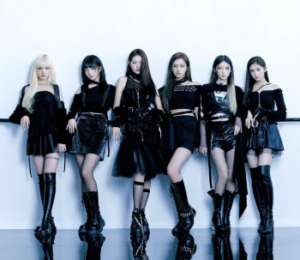TailorUnveiling the Hallyu Visa: South Korea’sed Welcome for K-Pop Aficionados
South Korea, recognized globally for its cultural phenomenon known as the “Korean Wave” or Hallyu, is taking a strategic leap into tourism by introducing a specialized visa catering to enthusiasts of South Korean culture. This new travel document, dubbed the Hallyu visa or the “K-culture training visa,” is designed to entice non-Koreans interested in immersing themselves in the vibrant world of K-pop and other facets of Korean artistic expression.


The Hallyu Visa: Opening Doors to Cultural Exploration
The Hallyu visa extends an invitation to non-Koreans willing to enroll in local performing arts academies, granting them the opportunity to reside in South Korea for a period of up to two years. This initiative aligns with South Korea’s vision of leveraging the arts as a catalyst for the future of K-culture. The Ministry of Culture, Sports, and Tourism identifies support for emerging artists and writers as a pivotal strategy among six key approaches to attract more international visitors.
K Tourism Road Show: Taking K-Culture Global
In tandem with the Hallyu visa launch, South Korea is set to unveil the “K Tourism Road Show” in various countries, including the US and Sweden, later this year. While specific requirements for the K-culture visa are yet to be disclosed, detailed information is anticipated by the second half of 2024.
Economic Impact: K-Pop as a Tourism Powerhouse
From an economic perspective, nurturing the ardent devotion of K-pop and K-drama enthusiasts makes undeniable financial sense. The K-music industry, boasting a staggering $10-billion valuation, has become a linchpin of South Korea’s economy. Last year, the nation experienced a noticeable economic dip when BTS, the global musical sensation, announced a temporary hiatus for its members to explore solo careers.
Tourism Industry Resurgence
In the wake of the Covid-19 pandemic, South Korea’s tourism industry has reemerged as a significant economic driver. The World Travel & Tourism Council predicts an average annual growth rate of 4.8% in the country’s tourism sector through 2032. This projection significantly outpaces the anticipated 1.8% growth rate of the national overall economy.
K-Pop’s Dominance in Tourism
It has already solidified its position as the primary motivation for visiting South Korea, surpassing even culinary attractions. According to a report by South Korea’s culture-and-tourism ministry, it was mentioned nearly 37 million times in social and online media discussions related to Korean culture. This frequency was approximately 2.6 times more than mentions of Korean food and four times more than general Korean cultural content.
Visit Korea, the country’s tourism promotional body, has strategically incorporated K-culture into its marketing endeavors, yielding impressive results. Engaging videos, such as “Challenge Korea: Hello Future” featuring “Squid Game” actor Lee Jung-jae, and “Feel the Rhythm of Korea,” showcasing pop megastars like BTS and Blackpink to promote diverse Korean destinations, have collectively garnered billions of views on YouTube.
In essence, South Korea’s innovative approach to fuse its cultural strengths with tourism initiatives positions the Hallyu visa as a beacon for those eager to explore the captivating realms of K-culture. As the country opens its doors wider to global enthusiasts, the marriage of entertainment and tourism is poised to create a harmonious symphony of cultural exchange and economic prosperity.
About k pop